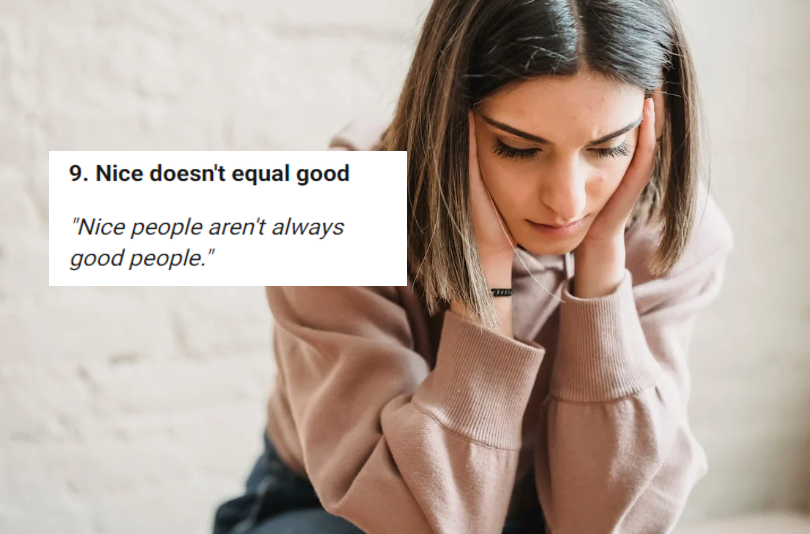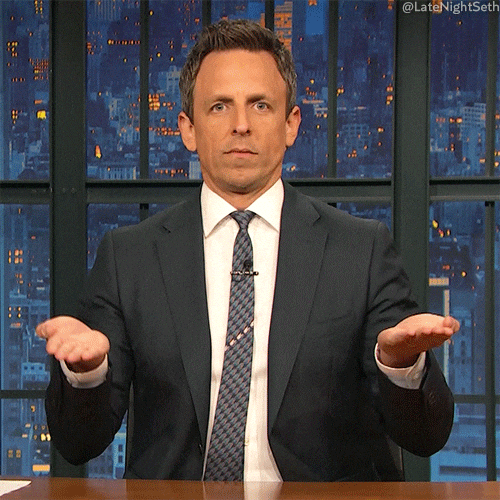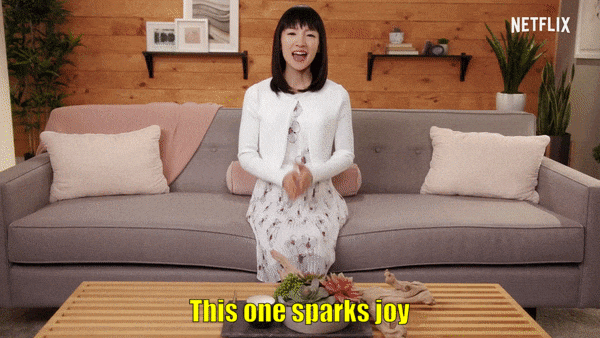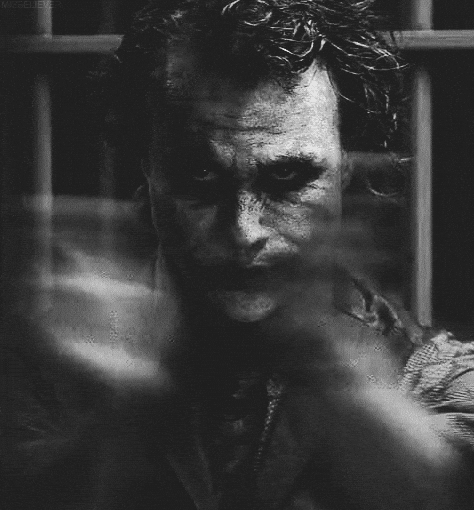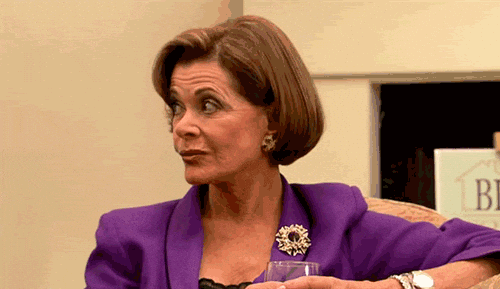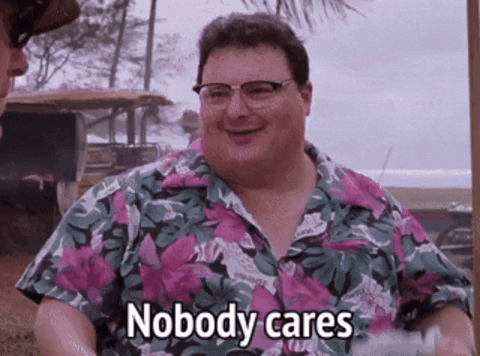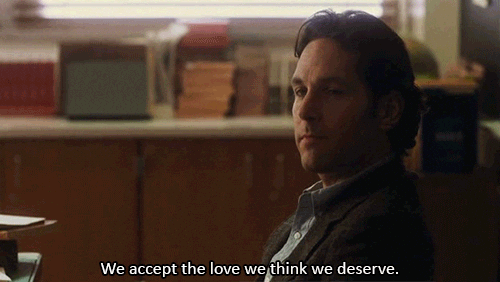This article originally appeared on 03.08.16
Like most parents, I didn’t know what I was doing when I first became a mom — because I’d never done it before.
I was 27 when our first child joined our family through adoption. He was 10 months old.
My son and me shortly after his adoption. That look on my face can probably best be described as “clueless but hopeful.” All photos of my kids and me belong to me.
I’d read everything I could get my hands on — books, articles, blog posts, and a whole lot more — in the year leading up to his adoption. So I had some solid book knowledge. But real life experience? Nah.
Sure, I babysat as a teenager, and I was a really good parent before I actually became one. However, as most parents know, parenting is very much a learn-as-you-go gig. We use the abstract knowledge we arm ourselves with and apply it the best we can while trying to keep our heads above water.
My husband and I made some mistakes, and we did some things brilliantly.
We faced a lot of challenges — both the regular ones that all new parents encounter and some more complex ones because our son spent 10 months in an orphanage before we became his parents. But we felt pretty good about our family, and we gained confidence as parents.
We thought: “Hey, we like this parenting thing. And we’re decent at it. We’re not the worst. Let’s do it again!”
So less than a year and a half later, I became a second-time mom when we adopted our daughter, Molley.
My daughter and me on her first birthday, about four months after she joined our family.
She was eight months old — and just as amazing as our son. After she was with us for about six months and we’d overcome some serious health challenges, her personality began to develop, and I quickly realized something:
I had no idea what I was doing.
Seriously, no idea.
All of that parenting experience I’d gained with my son did. not. apply. to. this. child.
She was a different person with a totally different personality, and those magical “skills” I’d allowed myself to think I’d developed were basically useless.
She was spirited and clever, kind and thoughtful, inquisitive and skeptical, opinionated and insistent.
And did I mention spirited?
After the first time she threw herself down on the ground in public and proceeded to scream bloody murder — probably when she was around 15 months old — because she wasn’t interested in whatever I’d suggested, I called my mom.
Not my child. But it totally could have been.
“What’s happening?” I asked. “Mattix never did this. What even is going on here?! The world is ending. Send help STAT!”
As moms often do, she imparted upon me some words of wisdom: Kids aren’t carbon copies of each other. And sometimes, we have to do everything differently … even when what we did before worked.
So that’s what I did.
What Laditan wrote is a variation of what many parents have said and believed since, well, the beginning of time.
Yes, it takes a village. And no, we shouldn’t parent in a silo. We benefit greatly from the help of friends and family and sometimes even complete strangers. But when it comes down to it, there’s a wide space between “best parent ever” and “worst parent on the planet” — and as long as we’re trying hard and landing somewhere slightly to the left of the middle, we’re probably doing just fine.
So unless we see actual abuse, we should probably just keep our mouths shut or maybe offer a few encouraging words or a small sign of solidarity to the other parents in the trenches. ‘Cause it’s very likely that they’re doing their best, too.
You know the thing about “good parents?” There’s not just one type.
That’s why I absolutely loved a recent post by mom and author Bunmi Laditan. She’s the comedic genius behind Honest Toddler on Twitter. (If you have young kids and you find humor to be a coping mechanism for the hard stuff parenting throws at you, do yourself a favor and follow her.) She also keeps us laughing, nodding our heads, and even crying a little with her Facebook posts.
But this one in particular is something every parent should read:
She writes:
“If you work, you’re missing your kid’s childhood. If you stay home, you’re wasting your education and not giving them an example of a strong, independent woman. If you’re a strict disciplinarian, your children will be stunted emotionally with damaged spirits. If you practice gentle parenting, you’re raising a future serial killer.
nnIf you homeschool, your child will never be able to succeed in society and will live in your basement playing World of Warcraft and and attend furry conventions forever. If they go to private school, they’ll be elitist snobs. If they go to public school, good luck because they’ll be on heroin before 7th grade and are probably pregnant right now.
nnnnIf you have only one child, they’re going to be lonely and when you die, they’ll have no one. If you have two of the same sex, how sad for you- surely you’ll try for the opposite gender? If you have three or more, you’re contributing to the collapse of the environment, imminent extinction of all protected species and overpopulation with your freakishly large family.
nnnnIf you’re raising a vegan, you’re annoying and your child’s bones are surely brittle as hell. If your kids eat meat, you’re a ruthless murderer and don’t you know sausage causes cancer? If your kids can’t have sugar, you’re denying them a proper childhood. If your kids can have sugar, you’re setting them up for a life of obesity and a snack cake addiction.
nnnnIf you breastfed, it was either for too long or not long enough and please do it under a tarp in a pitch black room because nobody wants to see your sex breasts. If you didn’t breastfeed, your child will never know true love, good health, or a real mother’s love.
nnnnThe moral of the story is, when it comes to parenting, there is always someone who’ll think you’re doing it all wrong so unless they’re paying your bills, just do you.”
After hearing the highest of praises and the lowest of insults when my daughter was younger, that’s the mental space I had to get myself to.
I kept on keeping on, and you know what? It’s going great. We got through our rough period that lasted about three years — until Molley was around 5 — and landed in a really positive place. We have an amazing relationship, and she continues to be a remarkable human being.
She even got me over my hatred of selfies!
Molley is 7.5 now and the past few years of parenting her have been an incredible experience — fun, humbling, interesting, and, of course, hard sometimes. We recently learned after some extensive testing that she’s “gifted.”
Her 7.5-year-old brain has the logical reasoning and comprehension abilities of a child 10 years old, and her vocabulary is many grade levels above that of a typical second-grader. It all kind of makes sense now — all of those hard times we had — and I’m so glad I didn’t let the opinions of others dictate what I did or didn’t do.
Being silly at lunch one day.
Did I make mistakes? Of course I did. Any parent who says otherwise is being dishonest. But I made choices that I felt were best for my child, and in the end, they were generally good ones. Had those strangers who wanted to make me feel like the worst mother ever been successful, maybe we wouldn’t be in such a good place now. I’m certain we’ll encounter bumps and challenges in the future because that’s what happens with parenting and kids. But I know we can handle whatever comes up.
I parented her the way I felt would work best, adjusting as we went.
I did most things differently than I had with Mattix, all in response to her needs. It just so happens that parenting Molley in public was a bit more of a spectacle, as she was a lot more vocal and physical about her displeasure, which she seemed to experience often.
I didn’t allow us to interrupt other people’s dining or shopping experiences. But on the sidewalk, at the park, in the parking lot, at the super-noisy pizzeria where we could barely even hear ourselves talk because it was so loud … we did our thing. If she hurled her sippy cup or dropped her stuffed animal and then promptly hit the deck to really drive home the point about how annoyed she was with me, we waited there until she got up herself, picked up her stuff, and walked on her own.
Sometimes that took five minutes. Sometimes it took 45. It turns out that we’re well-matched in the stubbornness department, and I truly felt that what we were doing was best.
Parenting her at home was quite different, too, but nobody was around to judge that.
I’d noticed things about Molley that were different. She was incredibly verbal by 12 months old — she had hundreds of words and spoke in sentences. By 18 months old, she’d go to her room when she was mad and stay there for hours, waiting me out, declining my offers to join the rest of us.
I was certainly learning as I went, but I knew one thing for sure: I couldn’t parent her like a typical child. Because she wasn’t a typical child. And that meant people, especially strangers, had lots of opinions.
I learned a few things very quickly: First, a lot of people want you to know exactly what they think of your parenting skills and style.
The second thing I learned is that there’s no consistency to others’ opinions. One person would walk by us, doing our thing on the sidewalk during a meltdown, and tell me what a wonderful, patient mother I was and how my daughter was going to grow into a respectful, good person because of what I was doing.
Five minutes later, another person would encounter us in the exact same situation and loudly comment about what a terrible mother I was and remark upon me being “the reason kids are so awful these days.”
It happened all the time. The fact that we obviously look so different from each other probably made us stand out a bit more, but I think this is something all parents of spirited children encounter. People would even take photos of us with their smartphones. Now that I think about it, I wonder how many “shame on this parent” Facebook posts we were featured in.
It didn’t take me long to tune out the negative, focus on my children and myself, and put my energy into being the best parent I could be, the opinions of strangers notwithstanding.
Still, it’s not fun to constantly hear you suck because you’re not doing something the way someone else thinks you should.
Parenting is fantastic — it’s the best part of life I’ve ever undertaken — and it’s a lot of work. As rewarding as it is, it can be physically tiring (OMG my kids didn’t sleep when they were babies), and it can be emotionally draining.
My kids and me, shortly after our daughter joined our family. Ohhh, the look of sweet naiveté on my face…
Most of us are doing the best we can. We’re reaching out and asking for help and advice when we want or need it. We’re reading everything we can. We’re adjusting our techniques and reactions when they’re not working. In the interest of keeping it real, some of us will admit we’re crying on the floor of our bedroom closet on occasion.
All of that is because we care. We love our kids. We want to be good parents for them.




